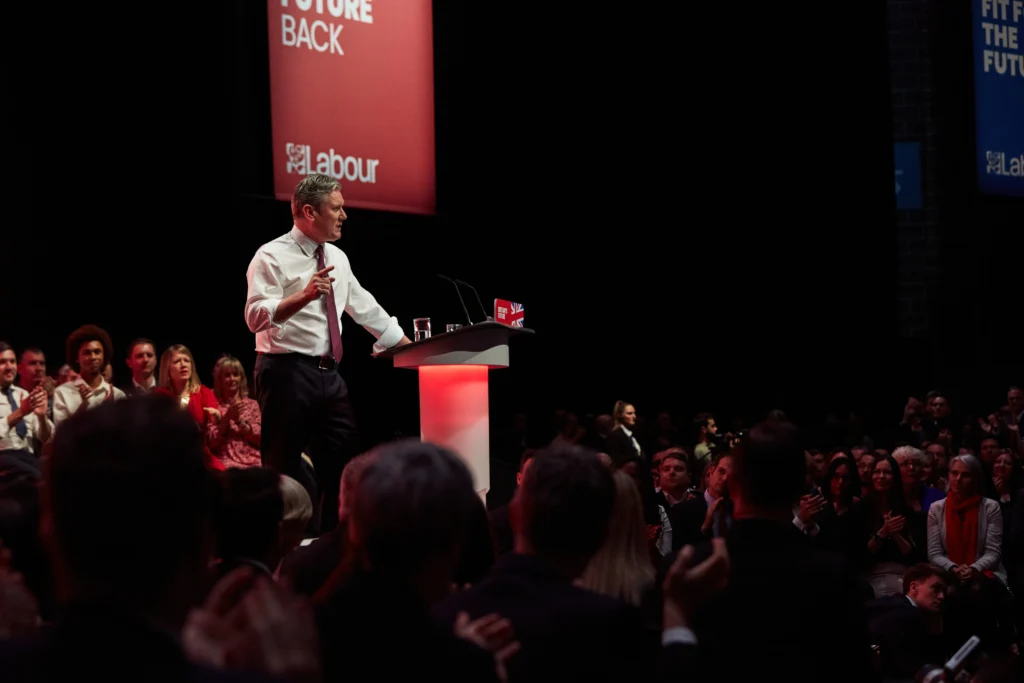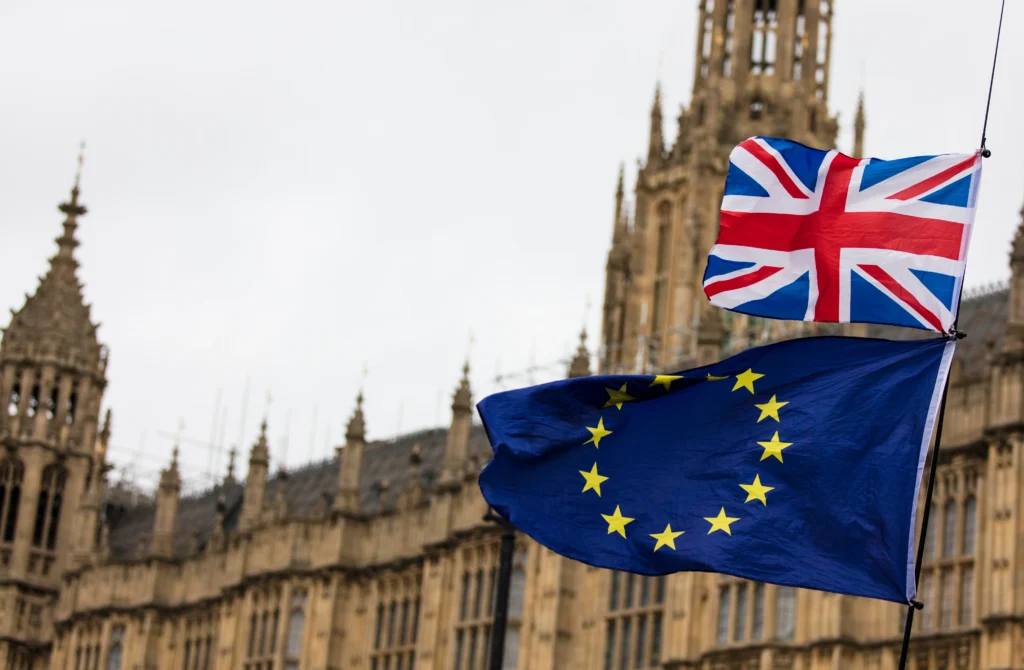A good Labour party conference is not a parade of announcements; it’s a disciplined proof-of-competence moment. The public wants three things: a sense that Labour knows where it’s going, a plan to get there, and a team that can deliver without any drama or infighting. Everything, speeches, fringe events, media grid, business meetings should serve one narrative: growth with security and fairness. Given we are flagging in the polls now, Labour needs a strong positive conference. Here is how Labour can make a success of Conference and turn things around:
1) Message discipline and a single story.
To make the Conference a success the Party needs to set one line that survives the week: e.g., “Make Britain wealthy again.” Then ladder everything to it- planning reform, skills, clean energy, NHS productivity, crime reduction. Kill the urge to cram; two or three flagship measures under a single headline beat 20 micro-policies that speak to multiple narratives. The Corbyn era was a scatter of policy announcements that nobody could remember, while the short New Labour pledge card delivered.
2) Tangible, near-term deliverables.
Announce a handful of 12-month deliverables with measurable dates: (a) a fast-track planning regime for brownfield and key infrastructure; (b) a grid acceleration package with guaranteed connection timelines; (c) an NHS productivity plan (digital, diagnostics, procurement reform) tied to monthly metrics; (d) a national skills compact—apprenticeships, FE/HE flexibility, and immigration rules aligned to shortage lists. Publish who’s in charge and how progress will be reported.
3) Fiscal credibility without fatalism.
Pair ambition with guardrails: independent costings, staged implementation, and a clear hierarchy of spending (growth-multipliers first). Explain trade-offs in plain English: what gets funded now, what waits, what is off the table. Don’t be afraid as part of that set piece to square with the British people and be frank on some of the difficult spending decisions that need to be made, including if necessary, spending cuts. The public respects a government that is honest about the challenges it faces and what is being done to meet those challenges.
4) A confident, plural team.
Labour needs to show its breadth: Ministerial leads, metro mayors, councillors, unions, SMEs and innovators on one stage and aligned. Give the party’s left and trade-union family respected roles on delivery (skills, safety, fair work) to bank unity without muddling the core message. Given the scrutiny the leadership is under at the moment, the breadth and unity will be essential in demonstrating to the country that Labour has a strong and experienced team of people in the right places leading on policies for change.
5) Business in the room and on the record.
There will be a Business Day: The various sector roundtables should produce short communiqués announcing five obstacles removed, five investments unlocked. Don’t announce “deals”; announce process certainty (planning timelines, regulatory clarity, routes to decision). Publish fast-track contacts for investors. Given the party’s weakness with business at present, showcasing Labour business support will be key to showing the country that we are focussed on growth and have a plan to grow the economy.
What Keir Starmer must do
1) Tell the ‘why’, not just the ‘what’.
Starmer’s central task is to connect competence to purpose. Open with a personal, values-anchored story based on work, service, fairness and then translate it into a national renewal thesis: growth as the route to better public services and higher wages, not a rival to them. Voters must feel the moral core behind managerialism and he must do this with passion and strength.
2) Own the growth plan personally.
Lay out a short, intelligible chain: Planning reform → private investment → better jobs → higher living standards. Cite three signature projects (housing zones, grid upgrades, ports/industrial clusters) with dates and delivery owners. Promise to sweat the boring stuff permits, connections, capex pipelines and report progress quarterly and even do this in populist language.
3) Be honest about trade-offs.
Credibility grows when leaders say no. Name two popular asks that won’t happen now (with reasons) and two tough reforms that will. Frame choices as sequencing, not denial: “We’ll do X first because it moves growth and cuts waiting lists fastest.” Crucially, be honest about things that cannot be done. The public respects honesty and even if a decision is not popular, they will accept if you level with voters.
4) Reclaim security, both economic and civic.
Marry growth to everyday stability: safer streets (visible policing + swift justice), energy security (domestic energy build-out + action on bills), and border competence (fast decisions, firm returns, humane rules). Show that Labour is the party of order and opportunity. Tough on crime and tough on the causes of crime worked. With many starting to believe the narrative of the right that Britain is lawless we need to nip this in the bud now.
5) Put the NHS on a productivity footing.
We must not promise new money without a method. Explain how Labour will free clinical time (admin automation, community diagnostics, procurement consolidation), tie it to monthly outputs (more tests, more operations), and commit to public dashboards. Name a delivery czar accountable for hitting targets. We need to focus on those things that matter to the public – getting a GP appointment in good time. Don’t tinker round the edges with equalities representation in the NHS, vapes and gender issues- focus on the issues that matter to the bulk of people.
6) Showcase the team.
Avoid presidentialism. Give Reeves, Streeting, Mahmood, Lammy and leading mayors distinct missions with outcomes and timelines. We have just had the reshuffle and now let’s put them on display. The optic: Labour is strong and diverse team making bold decisions on behalf of the country that will pay off in the long-term delivering growth, public service transformation and a resilient economy.
7) Speak human, not Whitehall.
Strip jargon out of the speeches. Replace “industrial strategy” with “making and building here again.” Swap “supply-side reform” for “faster permissions, better skills, cheaper energy.” Use examples from high streets, buses, care homes, building sites. This is the stuff that Farage is good at, and it resonates with the public. We need to start adopting the language of ordinary voters and not the policy wonks.
8) Neutralise wedge issues fast.
On culture-war traps, respond briefly and move back to wages, bills and safety. Show empathy, not contempt, for concerns you don’t share. Voters reward leaders who choose country over tribe. But we must not allow this to dominate the conference. All it does is give oxygen to Reform and the right of the Tory Party. This Conference must focus on the issues that Labour was elected on and is delivering on.
9) Project humility and momentum.
Close with a contract with the country: three promises for the next 12 months, three for the full term, plus a pledge to publish progress and correct course. Humility is also the order of the day. The government should acknowledge and even apologise for constraints and past mistakes. This builds trust and is a small win. The public like it when politicians admit an error and explain how they will turn things around.
By the end of the week, we want one clear message voters can repeat with two or three dated, measurable commitments. The Conference must demonstrate visible unity and competence and credible business engagement. If this is achieved the media coverage will frame Labour as the only serious vehicle for national renewal. If Starmer delivers the why, the how, and the who, the conference won’t just succeed it will reset Labour’s fortunes for the fights ahead.




